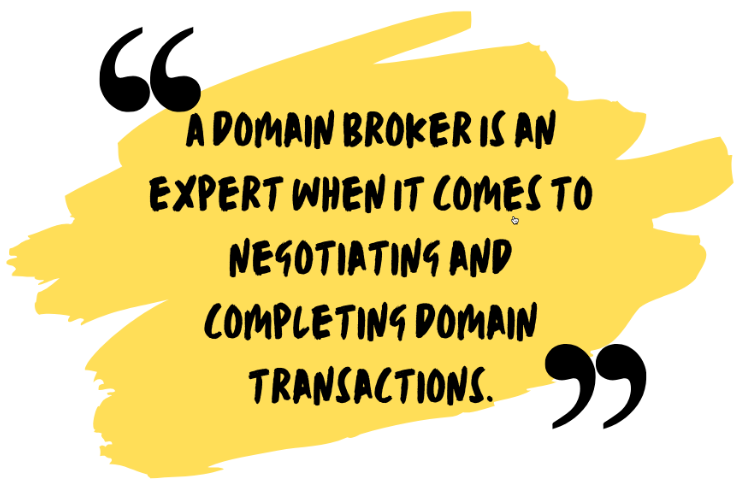The Best Places to Buy and Sell Domain Names
Last updated: 10 September, 2025. Got a domain name in your sights? Looking to sell one? Our domain marketplace comparison is just the ticket for anyone looking to buy or sell domain names – as Name Experts director Joe Uddeme explains. If you’ve found yourself here, you’re probably exploring the world of domain marketplaces or checking out related options. These are online sites where you can buy and sell domain names, and it can be fun typing a name into one of these sites to see if it’s already been taken. What you’ll quickly find is that pretty much every great name is already owned by somebody else (check out our post on what to do when someone else owns the domain name you want). There is a vibrant international market in buying and selling domain names; they’re traded like shares and some go for millions of dollars. Plus, of course, many of the good ones are actually in use. The likes of carrentals.com were never going to be simply ‘parked up’ forever! If you’re looking to buy a premium domain name, a broker specializing in market research, negotiation and transfer services can save you a ton of time and money. But for more everyday transactions – those costing a few thousand dollars or even as little as 20 bucks – a domain marketplace is where you’ll do business. In this blog post, we’ll look at some of the pros and cons of some of the best domain marketplaces, including Flippa and Namepros. Key takeaways Even for a low-value sale or purchase, use a reputable service. When you get into five figures or more, consider using a domain broker. Big names like Sedo and Namecheap are as popular as ever. Check out our FAQ for tips on selling fast, buying expired domains and more. 1. Sedo Sedo is a dedicated domain marketplace (similar to GoDaddy) with millions of users. It has been around for over two decades, making it a trusted marketplace for buying and selling domains. Any domain name owner can sign up for free and list their domain for sale on the website, and prospective buyers can easily contact them through the platform to buy domains. If you need something memorable that you can hang your whole business on, check out Name Experts’ current premium domains for sale. On Sedo, sellers can set a fixed price for their domain, put it up for auction, or indicate that they’re entertaining offers with an unspecified price range. When buyers come to the site, they can search for any keyword and check if anyone has listed a related domain name on the market. If you’re in the market for a premium domain name costing upwards of $10,000, consider seeking out an expert domain name brokerage service. These can help you purchase a domain name at the best price – or sell one without leaving money on the table. Sedo Search Sample: When we typed in ‘bikes’, the first three results were bikes.org, bikes.co, and bikes.biz, which are premium domain names – although they currently get little traffic. Sedo also includes other domain names that are closely related to your search phrase to sell domains. The first two domains in this example have a Make Offer button next to them, while the last has a Buy It Now button for your popular domain. This indicates that the domain sellers of the first two domains put them up for auction, while the third domain’s owner set a fixed price for their marketing strategy. As a buyer, you’re free to search for any specific URL and find related domains listed on Sedo to find the perfect domain. Purchasing from the domain marketplace requires added registration and jumping through a few other hoops, but it’s worth it as Sedo has such a large selection of premium domains available for acquisition. Who it’s best for: serious name-hunters who want access to a vast pool of names. 2. NamePros NamePros is an online community for domain name owners to interact and discuss events related to the industry. In the forum’s early days, users commonly posted they had domain names available for sale and wanted to connect with potential buyers. Observing this, the owner of the forum launched an official domain marketplace section for buying and selling domain names. On NamePros, any registered user can list the domain names they have available in a forum post. To make the domains easy for prospective buyers to find, NamePros has formal categories that users can attach to their posts to find the perfect domain. How much is it worth? Namepros can also share pertinent details of recently sold domains that are similar in nature to your domain search. Domain name valuation is a complex area, so tread carefully! Because it is a forum, NamePros only helps buyers and owners find each other and it’s up to them to negotiate and decide how they’ll handle payments for the domain. This is unlike Sedo, which facilitates payments and domain transfers for its users among other services. When using NamePros to buy a domain you should be more careful about your purchase. Set specific terms with the seller before proceeding on any deal and use a trusted online escrow service (e.g. Escrow.com) to ensure that the payment goes through only after the seller has transferred the domain name to your preferred registrar. You can find a large variety of domain names for sale on NamePros, making it one of the best domain marketplaces in the world. Who it’s best for: industry players and those looking to strike up a relationship with fellow domain traders. It’s by no means the easiest marketplace to use! 3. Flippa Flippa is a marketplace competing with GoDaddy for buying and selling online properties, including websites and domain names. The platform has facilitated millions of dollars in domain name sales since its inception in 2009 and has built a reputation as one of the most trusted domain name marketplaces to find the perfect domain name. The most expensive domain name deal arranged on Flippa was StockPhoto.com, which sold for $250,000. Any domain name owner can sign up on Flippa and list their domains, but it requires a payment of $29 for a base listing and $99 for an enhanced listing. Sellers often pick the second option because it makes their domains more visible to potential buyers looking for a great domain name. As a buyer, you can create a free account on Flippa and find domain names matching your taste. You can then search for a specific keyword and find related domain names listed by domain owners to buy domain names based on cost, features and budget. Easy to use To demonstrate, we searched for “cars”. The first three results were OldCarsForSale.com, acars.com, and fastsportscars.com, listed for $5,000, $100, and $1 respectively. OldCarsForSale.com is a premium domain worth its higher price. It’ll be a very good domain for anyone who wants to sell used cars online without a specific destination. Check out our post on choosing a good brand name for some further thoughts on this. Fastsportscars.com seems like a good generic domain name, but it can easily be mistaken for fastsportcars.com, giving it a disadvantage. It’s likely why it’s listed for a very low price and shows that you can find a good deal on a domain name for personal use. When you’re ready to make an offer or buy a domain on Flippa, the platform handles the entire process for you. They have been around for over a decade and built a reputation on the internet as one of the most trusted domain name marketplaces to find the perfect domain name. Who it’s best for: anyone wanting to sell quickly (choose an enhanced listing for maximum visibility). 4. Namecheap Namecheap is one of the most widely-used domain registrars, serving over 2 million customers and giving GoDaddy a run for its money. It also has a premium domain marketplace as well as business resources and forum support for its customers. Popular domain names Namecheap has an internet marketplace where domain name owners can connect with and manage potential buyers. Only domain names registered on Namecheap can be listed for sale, however, and owners can list their domain names at a fixed amount or put them in auctions. If a seller lists their domain at a fixed price, you can purchase it immediately, just like you would purchase a new domain on Namecheap. Auctions If the seller puts their domain up for auction, you’ll have to participate in a timed bidding process if you want to try and secure it. If you’re the one doing the selling, Namecheap collects a 10% commission on each sale. You must have a Namecheap account to buy domains from its marketplace and after buying any domain it is automatically transferred to your control. The convenient sale process makes Namecheap one of the easiest domain marketplaces to use over other domain marketplaces. Who it’s best for: amateurs and serious pros – Namecheap has something for everyone. 5. Atom.com (formerly Brand Bucket) Each premium domain is carefully reviewed by branding experts to ensure it meets high standards of originality, pronunciation, and memorability when selling domain names. This makes Atom.com a little different in the domain marketplace arena. Names often have five- or even six-figure asking prices. Visual Identity Package Every premium domain listing includes a professionally designed logo for your organization, providing a cohesive domain brand package that helps with your company identity. User-Friendly Search and Navigation Advanced filtering lets you search domains by industry, point, style, length, and other attributes to find the perfect match. Who it’s best for: anyone looking for a brandable premium name. They even mock up logos for available domains to give you a taster for what’s possible. FAQ About the Domain Name Marketplace Where can I sell my domain name fast? If you have a good name available and want to raise funds quickly, you can quickly sell it any of these marketplaces. A large platform such as SEDO, GoDaddy, Afternic or Namecheap offer great options for buying domains quickly – and also boast a fast transfer process. How fast do domain names sell? Domain names take anywhere from hours to days, months, or years depending on the demand for them. The amount the domain is listed for also plays a role in how quickly it will sell. If the price is too high relative to its value, there may be no interest from buyers, especially for a premium domain. If a domain is listed on the wrong marketplace, it may not sell, too. We recommend using a large marketplace like GoDaddy. Check out our post about domain flipping for some extra tips. Where do I buy expired domain names for sale? Many domain registrars host auctions for expiring domain names, including GoDaddy, Namecheap, and Network Solutions to buy domains. There are also websites specializing in auctioning expired domains, such as ExpiredDomains and DropCatch market services for other domain name sales on non-active domains. Domain brokers can help too. They can also help you buy names that are currently owned by someone else – even those already in use, if the price is right. How can I build or develop my domain? Select a registrar, choose and pay a hosting company to host the domain, and sign up for a web builder interface to develop the site. WordPress or Wix are popular, though Wix is easiest to use if you have no experience. GoDaddy also offers a turnkey solution for your company’s development to make launching online worry free. About the author Joe Uddeme is Director and Principal of Name Experts, one of the world’s leading domain name brokerage services. He has overseen domain name sales and acquisitions totaling more than $150 million and is renowned worldwide as a go-to expert in buying and selling premium domains. Contact us at: [email protected]







